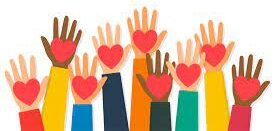May is Mental Health Awareness Month and there’s no better time than now to start making mental health a priority.
Mental health conditions are real, common, and treatable. People experiencing mental health challenges deserve support, compassion, and care—not stigma and shame.
Mental health includes our emotional, psychological, and social well-being. It affects how we think, feel, and act. It also helps determine how we handle stress, relate to others, and make choices. Mental health is important at every stage of life, from childhood and adolescence through adulthood.
All month long, ASK will be sharing tips and resources to help you better take care of your own mental health and to support good mental health for the youth in your lives. Please be sure to follow ASK across our social media platforms to be kept up to date on the information being shared.
Don’t be afraid to reach out if you or someone you know needs help. Learning all you can about mental health is an important first step. Here are a few important mental health resources:
If you or someone you know is in crisis, text HOME to 741741 to reach a trained Crisis Counselor 24/7 at the Crisis Text Line or call/text 988 to reach a local crisis center through the 988 Suicide & Crisis Lifeline.
Facts About Fentanyl
THE DRUG LANDSCAPE HAS CHANGED…
(Source: Song for Charlie)
- Illegally made fentanyl dominates the street drug supply, causing record numbers of drug deaths in America.
- Drug users are frequently unaware that their drug contains fentanyl, an opioid 50X stronger than heroin.
- Street drugs like cocaine, ecstasy, heroin and meth often contain fentanyl, without the user’s knowledge.
- Fentanyl is used to press fake prescription pills, sold deceptively as Xanax, Percocet, Oxycodone & more.
- Fentanyl is involved in 79% of Gen Z drugs deaths, higher than any other age group.
Volunteer Opportunities
There are a variety of volunteer opportunities at awesome nonprofits throughout Westchester and Putnam Counties. To view these opportunities, please check out Volunteer New York!
Upcoming Events and Webinars
Weekly Spotlight Family Support Groups
From our partners at Drug Crisis in Our Backyard, weekly Spotlight Family Support Groups, held virtually every Tuesday and Wednesday via Zoom. Spotlight on Recovery is a Family Educational and Support Group for families struggling with a loved one misusing substances. For more information, click here.
The Parent Support Network
The Parent Support Network is a program of The Youth Mental Health Project that seeks to provide support for parents and guardians who are concerned about the mental health of their children (ages 1 -25) through confidential, peer-to-peer meetings. For a list of upcoming virtual meetings, click here.
NAMI Westchester
The families and members of NAMI Westchester are here to help! They offer understanding to anyone concerned about mental illnesses and the treatment of mental illness. To view their calendar, click here.
May 2: Fentanyl – Every Parent Needs to Know
his presentation is designed by two Moms who have lost their sons to fentanyl and have dedicated their lives to educating families. We hope to teach teens and parents alike exactly what they need to know about illicit fentanyl, and fentanyl poisonings. Register now.
May 2: Responding in a Mental Health Emergency
What should you do when someone is experiencing a mental health emergency? Register now.
May 4: What is COVID Trauma?
The pandemic negatively affected peoples mental health. How do we heal from it’s impact? Register now.
May 8: Creating Positive Connections in Discipline
Does punishment change children’s behavior? Register now.
May 10: Understanding Trauma
Trauma is defined by the emotional and psychological effect an event has had on people. Register now.
May 16: Understanding Eating Disorders
Eating disorders can be a confusing illness. Register now.
May 18: Virtual Overdose Prevention Training
Naloxone is a prescription medicine that reverses an overdose by blocking heroin or other opioids in the nervous system for 30-90 minutes. Naloxone is administered by injection or intranasal. Following training, participants receive a kit by mail. Presented by our partners at Drug Crisis in Our Backyard. Register by email: ssal@drugcrisisinourbackyard.com
May 22: Early Attachment – Why Emotional Bonds Matter
What is secure attachment? Register now.
May 25: Mental Health and Mental Illness – What’s the Difference?
Don’t miss the signs that someone needs help. Register now.

